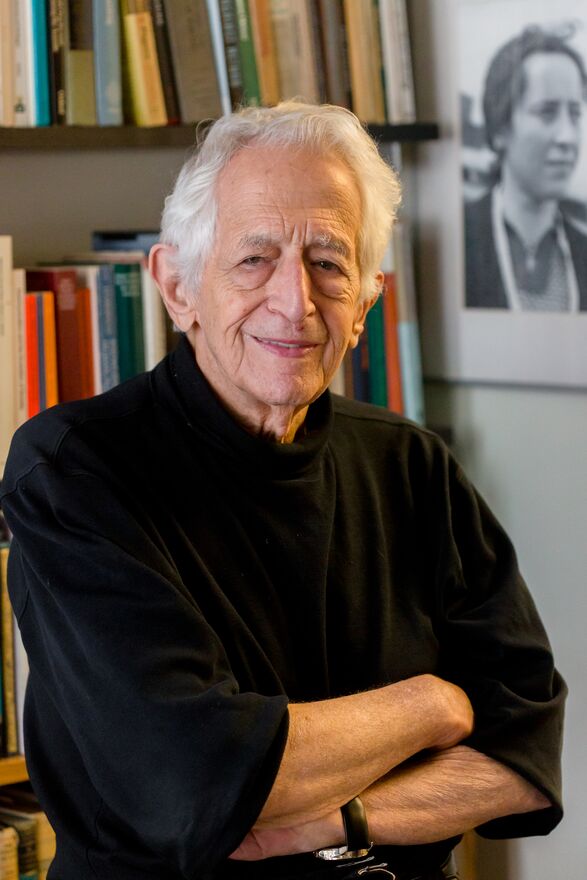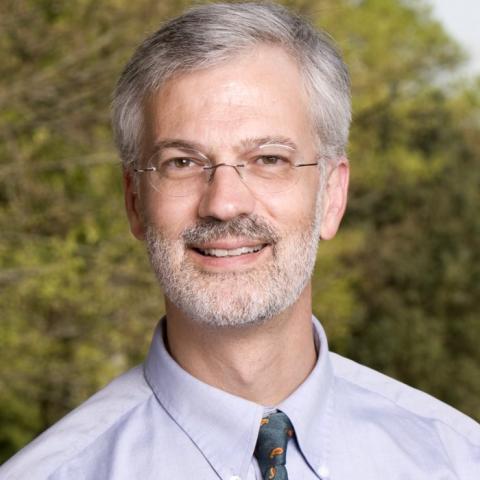Richard J. Bernstein, 1932-2022

Photo: Phillip Van Nostrand
Details
The philosopher taught at Haverford from 1966-89.
Former Haverford professor of philosophy Richard Bernstein, who inspired generations of Fords over the course of 23 years at the College, passed away on July 4th. He was 90 and died of heart and lung disease at his summer home in Jay, New York.
Bernstein came to Haverford in 1966 after a decade teaching at Yale, where he also earned his PhD. His work focused on the field of pragmatism and what is known as the 'longing for certainty', which Bernstein described as seeking "some fixed point, some stable rock upon which we can secure our lives against the vicissitudes that constantly threaten us.” Bernstein called this 'Cartesian anxiety'.
Having authored four books while at Haverford, he moved to The New School for Social Research in New York City in 1989, stepping down from their philosophy department chairmanship in 2002. He continued to teach through the spring semester of 2022.
"As a proponent of pragmatism," notes Will Milberg, dean and professor of economics at the New School, in a message to the New School community, "Dick believed in a dedication to truth in concrete life and in experience, pursued within a community built on mutual trust, and in finding resonance in diverse figures across the philosophical spectrum. This commitment was central to his work as both a writer and a teacher. It also undergirded his belief that philosophy must engage with ethical action — something he tried his best to live, from taking part in the 1964 Freedom Summer in Mississippi to teaching with the Transregional Center for Democratic Studies’ Democracy & Diversity Institutes to, most recently, helping at-risk scholars as the seminar leader for the New University in Exile Consortium."
Prof. Danielle Macbeth arrived at Haverford right after Bernstein departed and the two became friends in the decades that followed. "He was invariably charming and eager to hear how things were going in the department. Richard was deeply committed to philosophical inquiry, to the conversation of philosophy, and to the distinctive character of American philosophy in particular. And although he spent the bulk of his career at the New School, he clearly retained a special fondness for Haverford."
Ori Soltes '73, now on the faculty at Georgetown University, was a Haverford philosophy student and recalls Bernstein as "part of a rather extraordinary group that we were privileged to rub minds with, if we were inclined toward philosophy. To have Bernstein, Paul Desjardins, Ashok Gangadean, and Aryeh Kosman all there at the same time in the same place was probably as close as one could get to sitting in with Socrates, Plato, and Aristotle at some hypothetical Athenian conversation about the Good."
Prof. Gangadean remains an active member of Haverford's Department of Philosophy. "Dick Bernstein was our team leader when I arrived in 1968," he says, "and Dick played a key role in my appointment as Assistant Professor arriving from Brandeis University. The then-president, Jack Coleman, was enthusiastic about my appointment and cautioned me upon my arrival that I was entering a Philosophy Department with ‘very strong personalities and superstar teachers’. In effect he was saying 'Good luck kid!’. Ori's comments (above) also reflected the moment and sentiment in the student culture. There was great teamwork in the Department under Dick's leadership and we shared a passion for seeking Truth and Rational Inquiry. Back then we offered a one-year Historical Introduction to Philosophy designed for all liberal arts students and students had to take both semesters to get course credit. This core Introduction to Philosophy was a high point in the student culture. Students College-wide shared a vision that they had to take this one year course before graduation. We felt strongly that all students should gain basic Philosophical literacy as integral to their Haverford education…Change (a high-profile journal for higher education) published a feature article on Haverford Philosophy as a model for the Academy."
Bernstein is survived by his wife, Carol, former chair of the English Department at Bryn Mawr College; four children: Robin, Andrea, Jeffrey, and Daniel, and their spouses Bobby, Liz, Oscar, and Ben; six grandchildren: Skylar, Tessa, Maya, Jonah, Zelda, Dashiell and by Skylar's spouse, Elisabeth.
The family will be commemorating his death privately, with a public memorial in the fall. Friends are invited to share memories and reflections in the guestbook at Legacy.com.
Members of the Class of '70 hosted Prof. Bernstein in a Zoom meetup last summer and have posted the entire conversation to YouTube.





